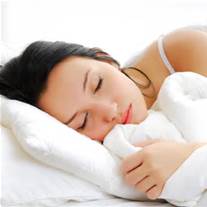SLEEP HYGIENE CONSIDERATIONS
#1. Get to sleep by 10:30 p.m. If you need time to wind down before you sleep, make the appropriate adjustments. Getting in bed at 10:00 p.m. and reading until 11:00 p.m. defeats the purpose.
#2. Minimize your exposure to bright lights, particularly fluorescent lights, for at least two hours before going to bed. If you don’t have dimmer switches try lighting your house with candles or lamps with low wattage bulbs.
#3. Sleep in a room that is completely dark. Purchase black out curtains or use blankets if necessary.
#4. Avoid consumption of stimulants (caffeine, sugar and nicotine) after lunch.
#5. Drink plenty of water. Our bodies have very little water reserve and dehydration stimulates stress response.
#6. Try unplugging all electrical devices in your bedroom, including clocks, TV’s and lights.
#7. Avoid confrontation and negative thoughts prior to bed. Consider keeping a journal and writing ten things you are grateful for before bed.
* Remember whenever light stimulates your skin or eyes, regardless of the source, your brain and hormonal system think it is morning. In response to light, your hormonal system naturally releases cortisol. Cortisol is an activating hormone that is released in response to stress. Our natural cortisol levels are meant to peak in the morning and begin dropping in the afternoon. Decreasing cortisol levels allow the release of melatonin and growth and repair hormones. Physical repairs primarily take place between 10:00 p.m. and 2:00 a.m. After 2:00 am the immune and repair energies are more focused on mental repair, which lasts until we awaken.

 RSS Feed
RSS Feed
